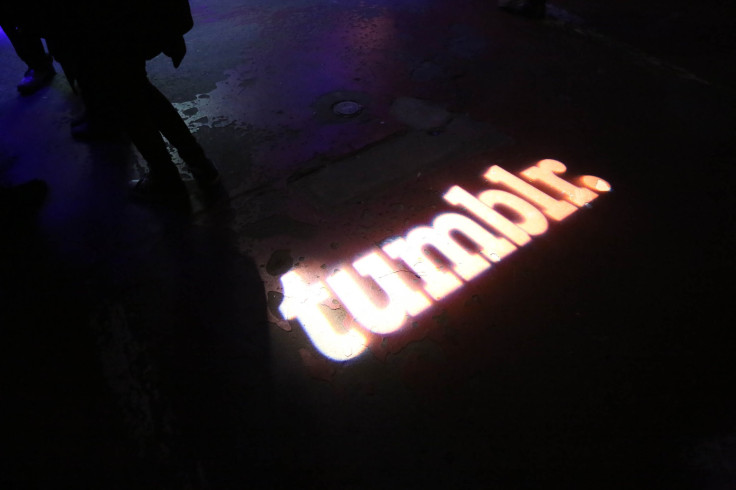Is Revenge Porn Legal? Tumblr Refuses To Tackle Nude Photo Leaks, Victims Say

Amid continued leaks of high-profile celebrities’ naked photographs, regular people have repeatedly become victims of “revenge pornography.” Some of those victims who’ve found images of themselves on Tumblr, a popular social media site that boasts progressive ideals, said the site isn’t doing nearly enough to help them.
A 27-year-old woman from New York discovered a video of herself engaged in intimate acts with her boyfriend when she was 17. It was posted on the website in December. By the time she found it, the footage was shared more than 1,000 times and included links to her personal Facebook account, as well as her full name.
Read: What Is Revenge Porn? Mischa Barton And Others Are Victims
“I was devastated,” she told the New York Post Monday. “I haven’t stopped crying since.”
Revenge porn has increasingly become a problem with the emergence of advanced technology and increased social media use. Cyber Civil Rights Intiative, a non-profit organization dedicated to fighting online abuse, defines revenge porn as something that is not only leaked images motivated by personal feelings, but generally as “nonconsensual pornography.”
“The distribution of sexually graphic images of individuals without their consent” qualifies as revenge porn, according to CCRI. “This includes both images originally obtained without consent (e.g. by using hidden cameras, hacking phones, or recording sexual assaults) as well as images consensually obtained within the context of an intimate relationship.”
Tumblr pledges core values like women’s rights and LGBTQ advocacy, but some users said they felt a disconnect between those values and Tumblr’s actions. A Change.org petition asking to ban any Tumblr accounts posting revenge porn or leaked nudes garnered thousands of signatures.
“In my opinion, Tumblr has chosen to ignore valid legal demands because they earn more money using victims’ photographs as clickbait than they do protecting minors,” Daniel Szalkiewicz, a laywer for a woman who is suing the site, told the Post.
As of June 2016, 34 states passed laws criminalizing nonconsensual pornography. Some other websites took it upon themselves to police the behavior. Pornhub, the largest adult website on the internet, implemented a simplified way for users to remove content posted without their permission in 2015. Users merely have to fill out an online form saying they had not agreed to the photos or videos and the images would be taken down quickly.
A Tumblr spokesperson denied to the Post that the website was doing less than it should.
“We review all reported content and remove any posts in violation of our community guidelines.”
© Copyright IBTimes 2024. All rights reserved.





















